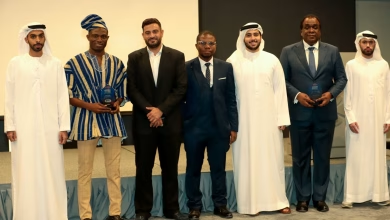Microfinance institutions (MFIs) in Ghana have been urged to enhance their governance structures, risk management practices, and adherence to regulatory requirements to better serve the country’s informal sector.
Elsie Addo Awadze, Second Deputy Governor of the Bank of Ghana (BoG), emphasized the importance of these measures in safeguarding the institutions and building public trust.
“MFIs play a crucial role in financial inclusion, providing access to financial services to underserved populations,” Addo Awadze stated in a speech at the 3rd Ghana Microfinance Institutions Network (GHAMFIN) Awards and Dinner Night.
However, she warned that compliance with regulatory frameworks is essential for ensuring the sector’s stability and effectiveness.
The BoG official also encouraged MFIs to adopt responsible lending practices and develop innovative products that meet the unique needs of their clients.
She highlighted the positive impact of fintech in promoting financial inclusion, citing the significant growth in mobile money accounts and transaction volumes.
Despite the positive developments in the fintech sector, Addo Awadze noted that the microfinance sector faces challenges such as corporate governance weaknesses, inadequate risk management, and non-compliance with regulations.
These issues have led to the insolvency of some MFIs and eroded public trust in the sector.
The GHAMFIN Awards and Dinner Night recognized NBFIs that have excelled in various areas, including gender focus, financial literacy, product innovation, and outreach to rural areas. The event was held under the theme “Financial Inclusion: A Catalyst for the Growth of the Informal Sector.”
Ghana’s Minister of Finance, Dr. Mohammed Amin Adam, acknowledged the significant role of NBFIs in supporting small and medium-sized enterprises (SMEs).
He emphasized the importance of NBFIs in driving economic development and job creation.
GHAMFIN’s Board Chairman, Mr. Bernard Joe Appeah, highlighted the network’s commitment to promoting financial literacy and supporting the government’s agenda for financial inclusion.
He also provided an overview of the performance of the microfinance sector in 2023, noting the significant contributions made by member companies to the country’s economy.
The Executive Director of GHAMFIN, Yaw Gyamfi, emphasized the importance of the awards program in enhancing competition and improving performance within the sector.
He expressed gratitude to the GHAMFIN board, staff, and industry associations for their contributions to the event’s success.
